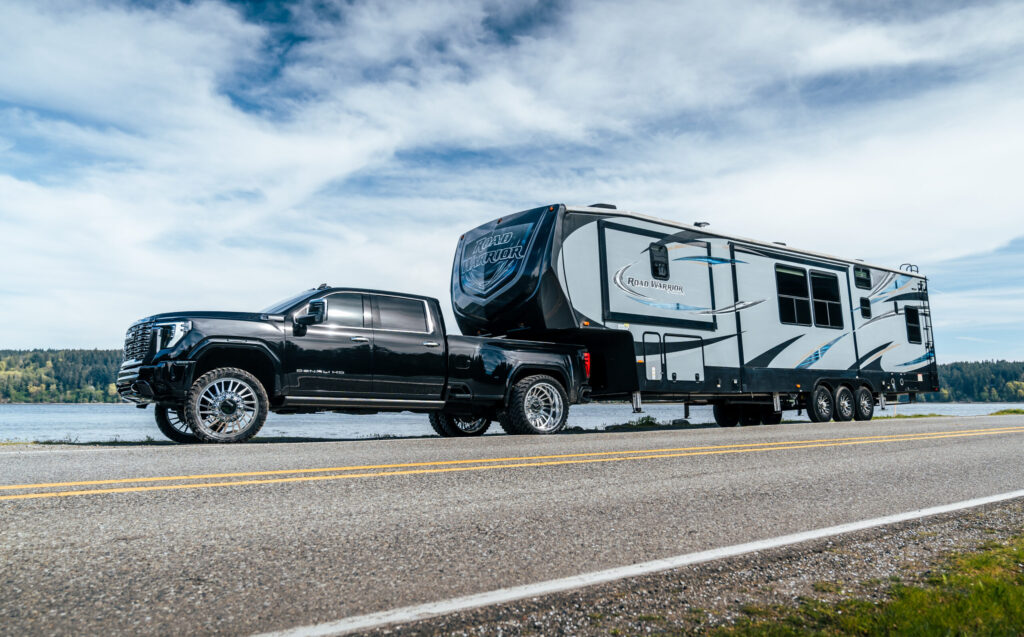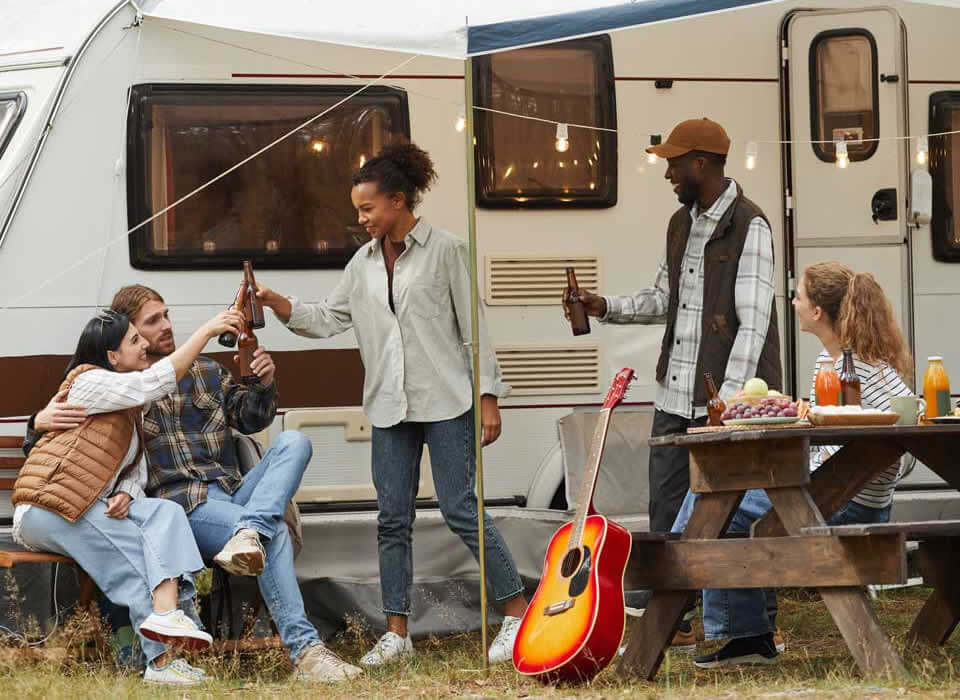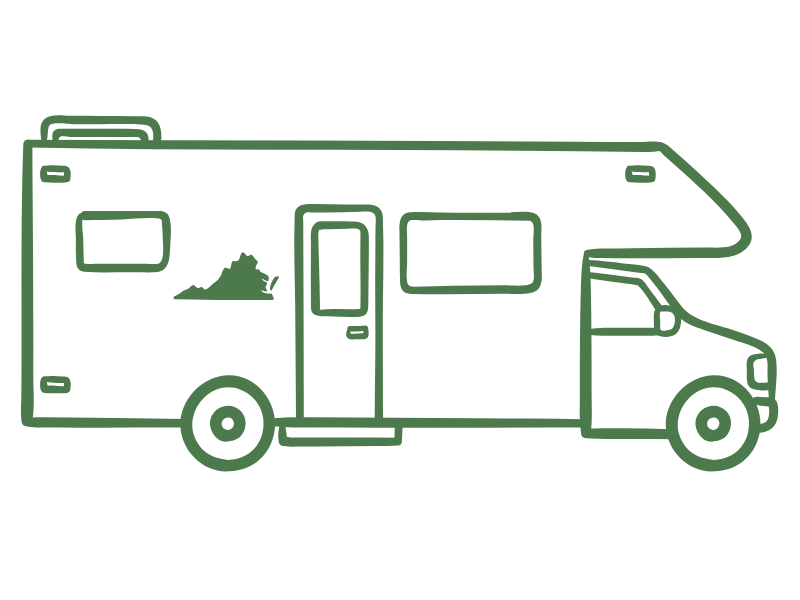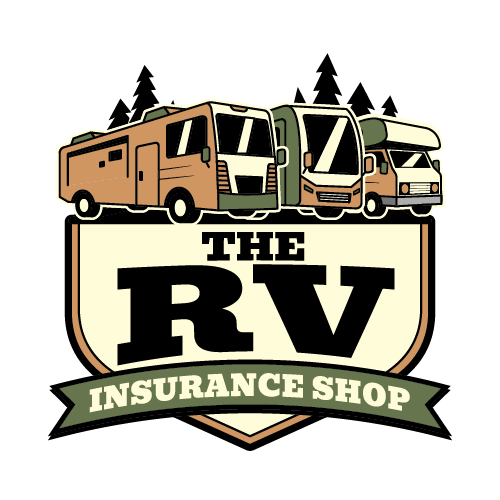Virginia RV Insurance
From the scenic Blue Ridge Parkway to the shores of the Chesapeake Bay, Virginia offers RV travelers endless opportunities for exploration. Whether you’re hiking in Shenandoah National Park, camping along the Appalachian Trail, or heading east to a coastal campsite, owning an RV gives you the freedom to see Virginia your way. But before hitting the road, it’s essential to have proper Virginia RV insurance to protect your investment and stay compliant with state laws.
With its blend of rural terrain, mountainous roads, and busy interstates, Virginia presents a range of driving conditions. A well-structured RV insurance policy ensures you’re covered whether you’re in motion, parked at a campground, or storing your RV for the season.

Virginia RV Insurance Frequently Asked Questions
Yes, RV insurance is required in Virginia for all motorized RVs, including Class A, B, and C motorhomes. These vehicles must carry the same minimum liability coverage as passenger vehicles to be legally registered and operated on public roads.
Towable RVs—such as travel trailers, fifth wheels, and pop-up campers—are not required to carry separate liability coverage, as they are covered under the towing vehicle’s policy while being towed. However, this coverage does not include protection from theft, fire, or physical damage. For full protection, many Virginia RV owners purchase separate comprehensive and collision coverage for their towable RVs.
Owning an RV in Virginia opens the door to unforgettable travel and relaxation. But it also comes with real risks—from accidents and weather events to liability concerns. Virginia RV insurance ensures you’re prepared for the unexpected while protecting your vehicle, your belongings, and your financial security.
With the right policy in place, you can confidently enjoy Virginia’s scenic byways, wooded campsites, and historic routes—knowing that you’re covered on and off the road.
- $30,000 for bodily injury per person
- $60,000 for bodily injury per accident
- $20,000 for property damage per accident
Note: While these are Virginia’s required minimums, many RV owners increase liability limits and add extra coverage to better safeguard against accidents, severe weather, and the cost of replacing personal property stored in the RV.
RV insurance premiums in Virginia vary based on factors such as the type of RV you own, how you use it, where it’s stored, and your personal driving history. Seasonal users may pay less than full-time RVers, and motorhomes typically cost more to insure than towable RVs due to their self-propelled nature.
Other cost influences include whether your RV is financed, the deductible you choose, your claims history, and any add-on coverages like roadside assistance or full replacement value. Virginia’s relatively moderate climate may help keep premiums manageable compared to states with more extreme weather risks.
Recommended Coverage for Virginia RV Owners
To fully protect your motorhome or trailer, many RV owners in Virginia include these optional coverage types:
- Comprehensive Coverage: Protects against non-collision damage such as fire, theft, weather, and falling debris.
- Collision Coverage: Pays for damage resulting from an accident, regardless of who’s at fault.
- Vacation Liability: Offers liability protection while your RV is parked and used as a temporary residence.
- Personal Effects Coverage: Covers personal belongings stored inside the RV, such as electronics and clothing.
- Full-Time RV Coverage: For those living in their RV full-time, this coverage extends protections similar to homeowners insurance.
- Roadside Assistance: Includes towing, tire changes, fuel delivery, and more—especially helpful on long rural drives.
- Emergency Expense Coverage: Covers lodging and meals if your RV is rendered uninhabitable while traveling.
How to Save on RV Insurance in Virginia
- Bundle with other policies: Many insurers offer discounts when you combine RV, home, and auto insurance.
- Choose secure storage: Storing your RV in a locked, covered facility can reduce theft and weather-related risk—and lower your premium.
- Report seasonal use: If your RV is only used part of the year, you may qualify for lower rates.
- Install safety features: Alarm systems, tracking devices, and tire pressure monitors can lead to discounts.
- Maintain a clean driving record: Drivers with fewer violations and claims are typically rewarded with lower premiums.

Testimonials
Marty Karriker is a class act! His communication and business ethics are top notch and it’s always a pleasure to work with him and his team.
- Andrew Steele (RVing with Andrew Steele)
Common RV Risks in Virginia
Virginia’s mix of geography and weather patterns introduces several potential risks for RV owners:
- Severe Storms: Thunderstorms, heavy rain, and occasional flooding can damage RV exteriors and electrical systems.
- Mountain Driving: Steep grades and winding roads, especially in the western part of the state, can increase the risk of accidents.
- Theft and Vandalism: RVs stored in unsecured areas or at busy campgrounds may be targeted.
- Winter Weather: In higher elevations, snow and ice can affect RVs in storage or lead to slick driving conditions.
- Animal Damage: Mice and other rodents may chew through wires or insulation when RVs are stored for extended periods.

Request a Quote
We help RV owners across Virginia find policies tailored to their needs, lifestyle, and travel habits. Whether you’re a seasonal traveler or full-time adventurer, we’ll match you with the right coverage at a competitive rate.
Contact us today for a free Virginia RV insurance quote and start your next journey with confidence.

